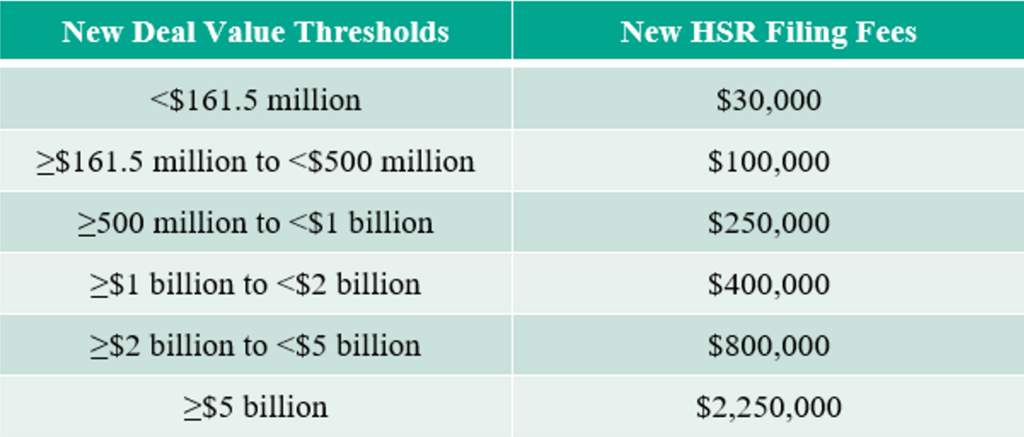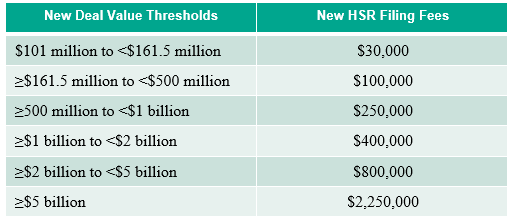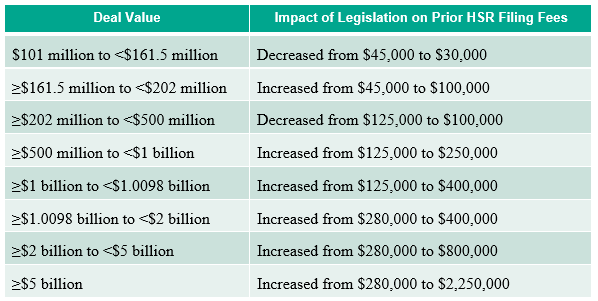The Federal Trade Commission (FTC) announced on January 23, 2023, the implementation of increased thresholds for merger notifications under the Hart-Scott-Rodino Antitrust Improvements Act of 1976 (HSR Act) as well as increased filing fees for reportable transactions.
Notification Threshold Increases
Pursuant to the HSR Act, all transactions which meet or exceed the jurisdictional thresholds, and which do not satisfy an exemption, must be notified to the FTC and US Department of Justice (DOJ) through an HSR filing. The newly announced thresholds will apply to all transactions that close on or after the effective date. The effective date is 30 days after the notice is published in the Federal Register; the notice is currently scheduled to be published on January 26, 2023, making the effective date February 27, 2023.
The threshold changes are tied to changes in the gross national product (GNP).
- The base statutory size-of-transaction threshold, the lowest threshold requiring notification, will increase to $111.4 million.
- The upper statutory size-of-transaction test, encompassing all transactions valued above a certain size (regardless of the size-of-person test being met), will increase to $445.5 million.
- The statutory size-of-person lower and upper thresholds (which apply to deals valued above $111.4 million but not above $445.5) will increase to $22.3 million and $222.7 million, respectively.
Merger Filing Fee Increases
The passage of the Merger Filing Fee Modernization Act on December 29, 2022, altered the filing fee thresholds as well as significantly increased the fees imposed on transacting parties when making an HSR filing in excess of $1 billion. Like the notification threshold increase, these filing fee adjustments will also take effect 30 days after publication in the Federal Register, meaning the increased fees will also go into effect on February 27, 2023.
The new transaction thresholds and accompanying fees are provided in the table below:

As with the notification thresholds, the filing fee thresholds and fee amounts will now be subject to annual adjustment at the start of each year based on GNP for thresholds and consumer price index (CPI) for fee amounts.
read more


 Subscribe
Subscribe


